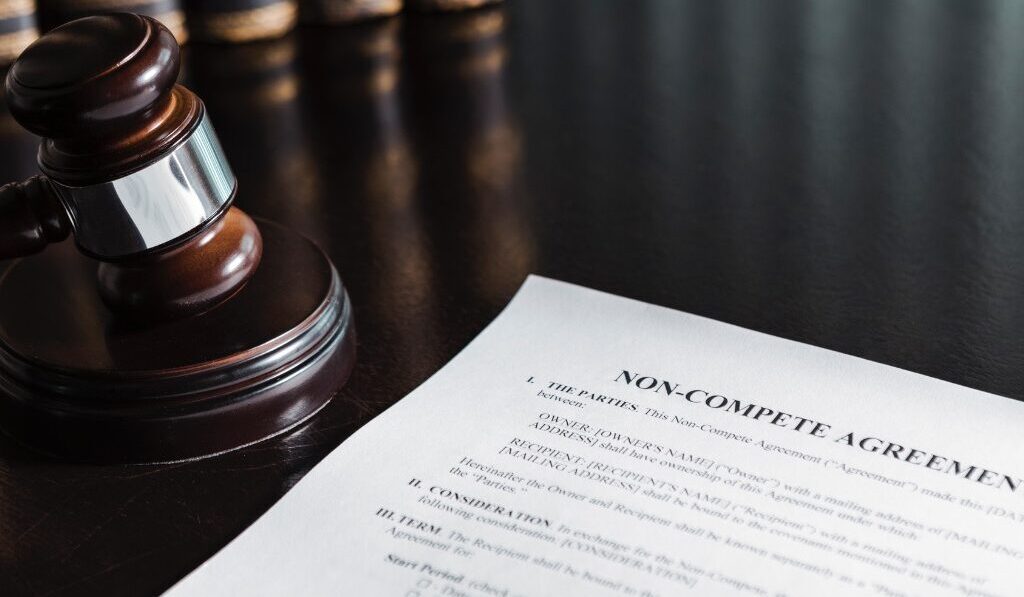Absent definitive legal rulings, on September 4, 2024—in just two weeks– the Federal Trade Commission’s (“FTC”) final rule (“Rule”) banning most noncompete agreements in employment contracts will take effect. Until the Rule’s validity is definitively determined, employers should neither enforce existing non-compete agreements, except in narrow situations for “senior executives,” nor create new ones.
FOS has previously issued Client Alerts and articles regarding the Rule and the impact of its effective date. https://foslaw.com/counting-down-to-the-september-4th-effective-date-of-the-ftcs-noncompete-ban/; https://foslaw.com/federal-trade-commission-approves-ban-on-many-non-compete-agreements/.
Of immediate concern to employers is the Rule’s requirement that, by the September 4 effective date, employers with existing noncompetes (i.e. those that have not expired) must notify most current and/or former employees that the covenants will not be enforced. A notice must include “clear and conspicuous” language identifying the contracting employer and can be provided digitally (email or text) or paper (not orally). A rare exception exists if the employer has no record of a street address, email, telephone, or other method to contact the employee.
There are currently three lawsuits challenging the Rule’s validity: Ryan LLC v. F.T.C. (N. D. Texas); ATS Tree Services LLC v. F.T.C. (E. D. Pennsylvania); and Properties of the Villages, Inc. v. F.T.C. (M. D. Florida). More may follow. One court (ATS Tree Services) refused to stay or enjoin enforcement of the Rule pending that case’s resolution holding, among other things, that the Rule is likely enforceable. The two other courts (Ryan and Properties, on August 15, 2024) granted stays and enjoined the Rule’s enforcement, but only as to their specific plaintiffs, not nationwide. The court in Ryan intends to issue a full decision on the Rule’s legality by August 30, 2024.
Given the status of and divergent results thus far from these cases, and the almost certainty that their ultimate decisions will be appealed, employers must consider whether to comply with the Rule’s notification requirements before September 4 or wait until a clearer and more consistent picture develops as to the Rule’s likely validity or invalidity. This is a decision only employers can make, based on their particular employment and operational circumstances.
One of the many considerations for employers is that the Rule has no express private right of action which, if not judicially modified, would mean that employees cannot directly sue employers for violating the Rule. Another is that the FTC could institute an enforcement investigation/action against an employer to determine whether the employer has issued applicable notices. However, and especially during the beginning of the Rule’s rollout, such action would likely occur, if at all, against large companies.
FOS previously advised employers to pull pending noncompete agreements from their files so that they have a list of relevant current and/or former employees and the dates of their agreements. Even if employers decide not to immediately send out applicable notices, employers should prepare a draft notice form which can be quickly implemented as the employers deem appropriate. Any notice should clearly and conspicuously state that it is being issued subject to litigation regarding the Rule’s validity, and that if the Rule is determined to be unenforceable, the notice will no longer apply and the relevant noncompete will be in effect and enforceable.
In addition to issues regarding the Rule, employers might want to consider and review, if applicable, other agreements which could protect their interests. These include confidential and non-disclosure clauses, which can still be enforced if they are determined not to be “non-competes” under the Rule. Employers should also identify any legally protectible trade secrets and ensure proper policies and procedures are in place to protect them.
Contact your FOS attorney with questions regarding the Rule’s upcoming September 4 effective date, who qualifies as a “senior executive,” the Rule itself and its requirements, or for help developing a compliance plan that works for your business.






